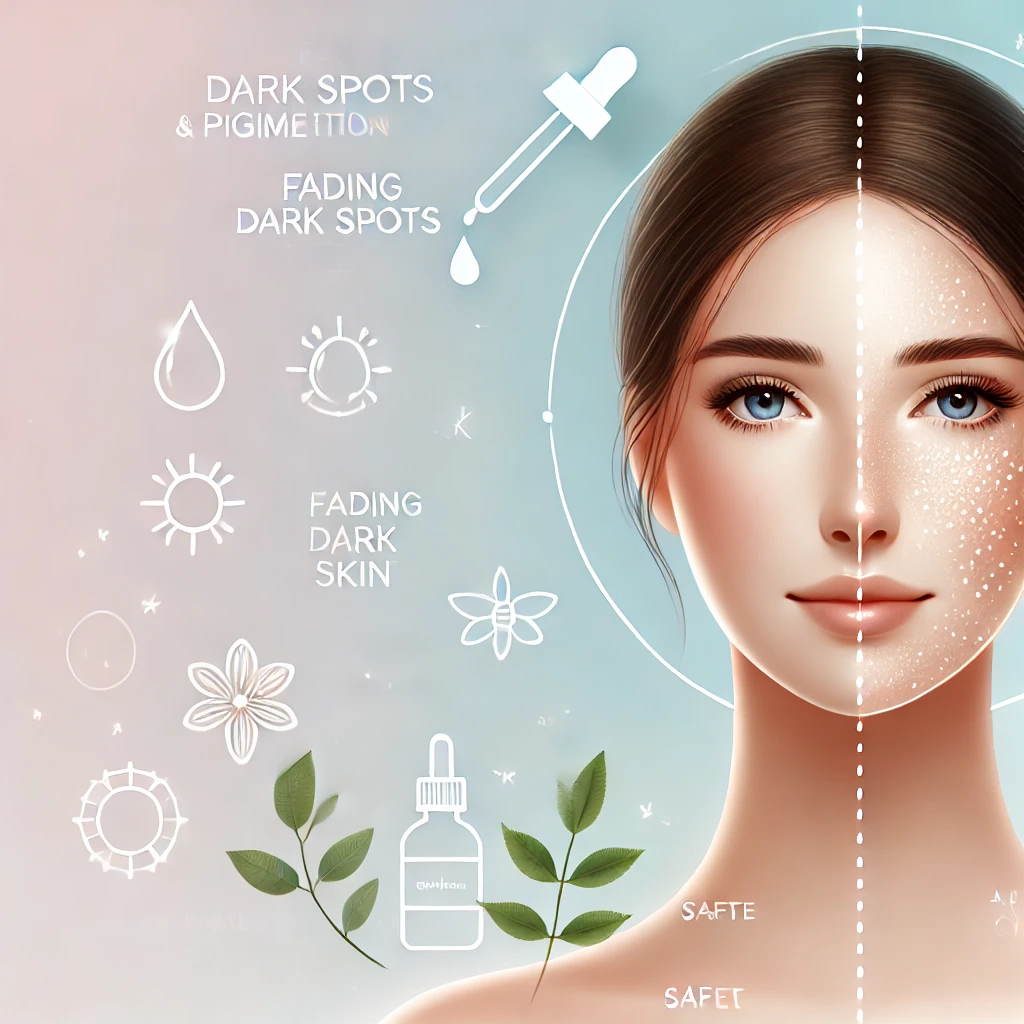The Science of Skin Lightening: How Ingredients Like Glutathione and Vitamin C Actually Work

In recent years, the pursuit of a radiant and even-toned complexion has led to a significant surge in the popularity of skin-lightening products. Among the myriad of ingredients touted for their efficacy, Vitamin C and Glutathione have emerged as frontrunners in the realm of dermatology and cosmetic science. Understanding the mechanisms by which these compounds influence skin pigmentation is crucial for individuals seeking safe and effective solutions to hyperpigmentation and related concerns.
The Role of Vitamin C in Skin Brightening
Vitamin C, scientifically known as ascorbic acid, is a water-soluble vitamin renowned for its potent antioxidant properties. Naturally present in various fruits and vegetables, it plays an indispensable role in maintaining skin health through several key mechanisms:
Antioxidant Properties and Collagen Synthesis
As a powerful antioxidant, Vitamin C neutralizes free radicals—unstable molecules generated by environmental aggressors such as ultraviolet (UV) radiation and pollution. By mitigating oxidative stress, Vitamin C helps prevent premature skin aging and damage. Furthermore, it is integral to the biosynthesis of collagen, a structural protein vital for skin elasticity and firmness. Vitamin C acts as a cofactor for prolyl and lysyl hydroxylase enzymes, which are essential for stabilizing and cross-linking collagen fibers. Enhanced collagen production not only aids in reducing the appearance of fine lines and wrinkles but also promotes wound healing and overall skin resilience. Wikipedia
Inhibition of Melanin Production
Hyperpigmentation, characterized by dark spots and uneven skin tone, often results from excessive melanin production. Vitamin C addresses this issue by inhibiting the activity of tyrosinase, the key enzyme involved in melanogenesis—the process by which melanin is synthesized. By downregulating tyrosinase activity, Vitamin C effectively reduces melanin formation, leading to the lightening of existing hyperpigmented areas and the prevention of new dark spots. This mechanism makes Vitamin C a valuable agent in treating conditions like melasma and age spots.
Understanding Glutathione’s Effects
Glutathione is a tripeptide composed of three amino acids: glutamine, cysteine, and glycine. It is naturally synthesized in the human body and serves as a critical antioxidant, safeguarding cells from oxidative damage and maintaining redox balance. In the context of skin health, Glutathione’s influence on pigmentation has garnered considerable attention.Wikipedia
Natural Occurrence and Skin Benefits
Endogenously produced in the liver, Glutathione is pivotal in detoxification processes and the neutralization of free radicals. Its antioxidant capabilities contribute to overall cellular health, which is reflected in the skin’s appearance. Adequate levels of Glutathione are associated with reduced signs of aging and improved skin clarity.
Mechanism in Reducing Pigmentation
Glutathione’s skin-lightening effects are primarily attributed to its ability to inhibit tyrosinase activity, thereby decreasing melanin production. Additionally, Glutathione promotes the conversion of eumelanin (dark pigment) to pheomelanin (light pigment), further contributing to a lighter skin tone. Its role in reducing oxidative stress also indirectly supports the prevention of hyperpigmentation, as oxidative damage can trigger melanocyte activity.
Synergistic Effects of Combined Ingredients
When Vitamin C and Glutathione are combined in skincare formulations, they exhibit complementary actions that enhance their individual benefits:
- Enhanced Antioxidant Defense: Vitamin C aids in regenerating Glutathione, sustaining its antioxidant function. This interplay amplifies the skin’s defense against oxidative stress, leading to improved skin health and radiance.
- Augmented Skin Lightening: The concurrent inhibition of tyrosinase by both compounds results in a more pronounced reduction of melanin synthesis. This dual action effectively addresses hyperpigmentation, yielding a more even and brighter complexion.
Recognizing the efficacy of this combination, Allspur Labs has developed products that harness the synergistic potential of Vitamin C and Glutathione:
- Glospur-C Face Wash: This face wash is enriched with Vitamin C and Glutathione, designed to brighten the skin while providing moisture protection. Regular use aims to combat dullness and promote a luminous complexion. Allspur Labs
Safety and Efficacy Considerations
While Vitamin C and Glutathione are generally considered safe for topical application, certain precautions can optimize their benefits and minimize potential risks:
- Proper Usage and Sun Protection: Incorporating these ingredients into a skincare routine should be accompanied by diligent sun protection. Applying a broad-spectrum sunscreen daily prevents UV-induced pigmentation and protects the skin’s integrity, enhancing the efficacy of skin-lightening treatments.
- Consulting with Dermatologists: Before initiating any new skincare regimen, especially those involving active ingredients like Vitamin C and Glutathione, consulting with a dermatologist is advisable. A skincare professional can provide personalized recommendations based on individual skin types and concerns, ensuring both safety and effectiveness.
Conclusion
Vitamin C and Glutathione play pivotal roles in the science of skin lightening, each offering unique mechanisms to brighten and even out skin tone. Their combined use leverages their synergistic effects, providing enhanced results in addressing hyperpigmentation. By choosing scientifically formulated products and adhering to proper usage guidelines, individuals can achieve a healthier, more radiant complexion.

